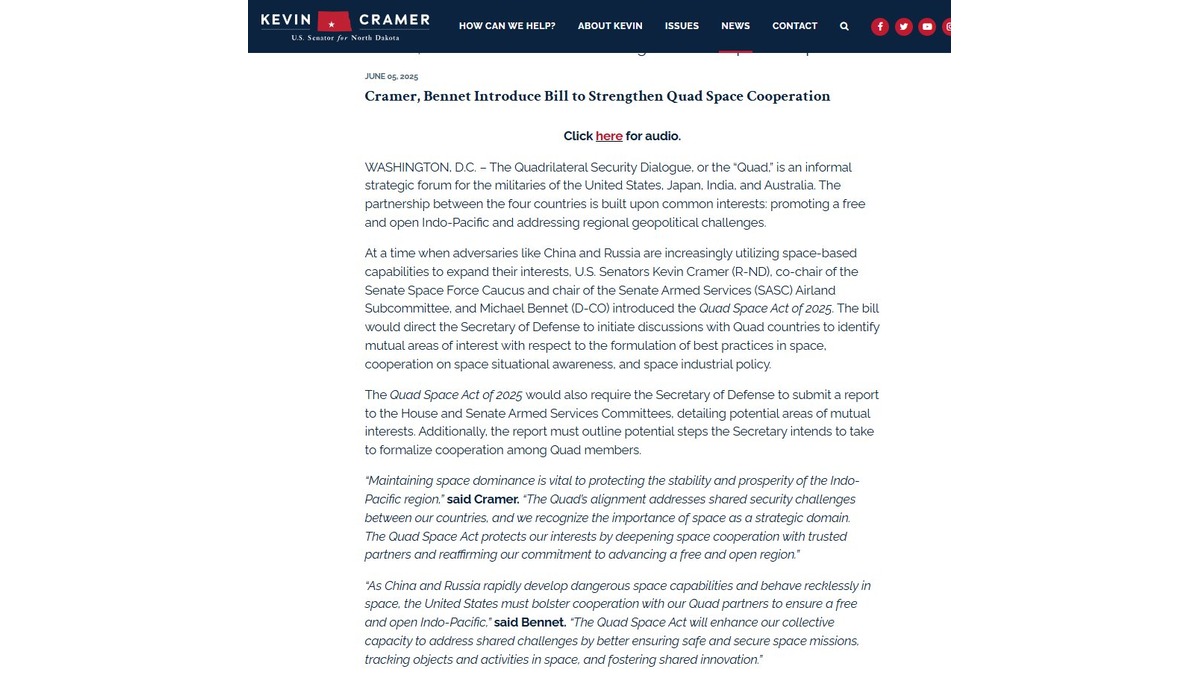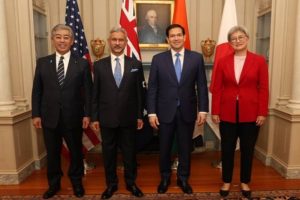In a strategic move to counter growing space threats from adversaries like China and Russia, US Senators Kevin Cramer and Michael Bennet have introduced the Quad Space Act of 2025 aimed at enhancing space cooperation among the Quad nations—India, Australia, Japan, and the United States.
The proposed legislation directs the US Secretary of Defense to initiate formal discussions with Quad partners to identify shared interests in key space-related areas, including best practices for space operations, space situational awareness, and space industrial policy.
Highlighting the urgency of the bill, the senators emphasized the evolving threat landscape in space and the need for democratic allies to deepen their collaboration.
“Maintaining space dominance is vital to protecting the stability and prosperity of the Indo-Pacific region,” said Senator Kevin Cramer, who co-chairs the Senate Space Force Caucus and leads the Senate Armed Services Airland Subcommittee. “The Quad Space Act protects our interests by deepening space cooperation with trusted partners and reaffirming our commitment to a free and open region.”
Senator Michael Bennet echoed the sentiment, adding that the bill aims to ensure secure space operations, improve tracking of space objects, and encourage collaborative innovation. “As China and Russia rapidly develop dangerous and reckless space capabilities, the United States must strengthen its partnerships with Quad allies,” he said. “This legislation enhances our collective capacity to meet shared challenges in space.”
The bill comes at a time of increasing global concern over militarization of space and the need for coordinated frameworks among like-minded nations. The Quadrilateral Security Dialogue (Quad) has already emerged as a key platform for regional cooperation on security, technology, and resilience in the Indo-Pacific.
Earlier this year, on his first day as US Secretary of State, Marco Rubio hosted his Quad counterparts—India’s External Affairs Minister S. Jaishankar, Japan’s Takeshi Iwaya, and Australia’s Penny Wong—for a high-level meeting in Washington, DC. The foreign ministers reaffirmed their collective commitment to a “free, open, inclusive, and resilient Indo-Pacific” and opposed unilateral actions that attempt to alter the status quo by force.
The Quad Space Act is expected to reinforce this diplomatic momentum by establishing formal space cooperation mechanisms, helping to ensure safety, stability, and innovation in the final frontier.






